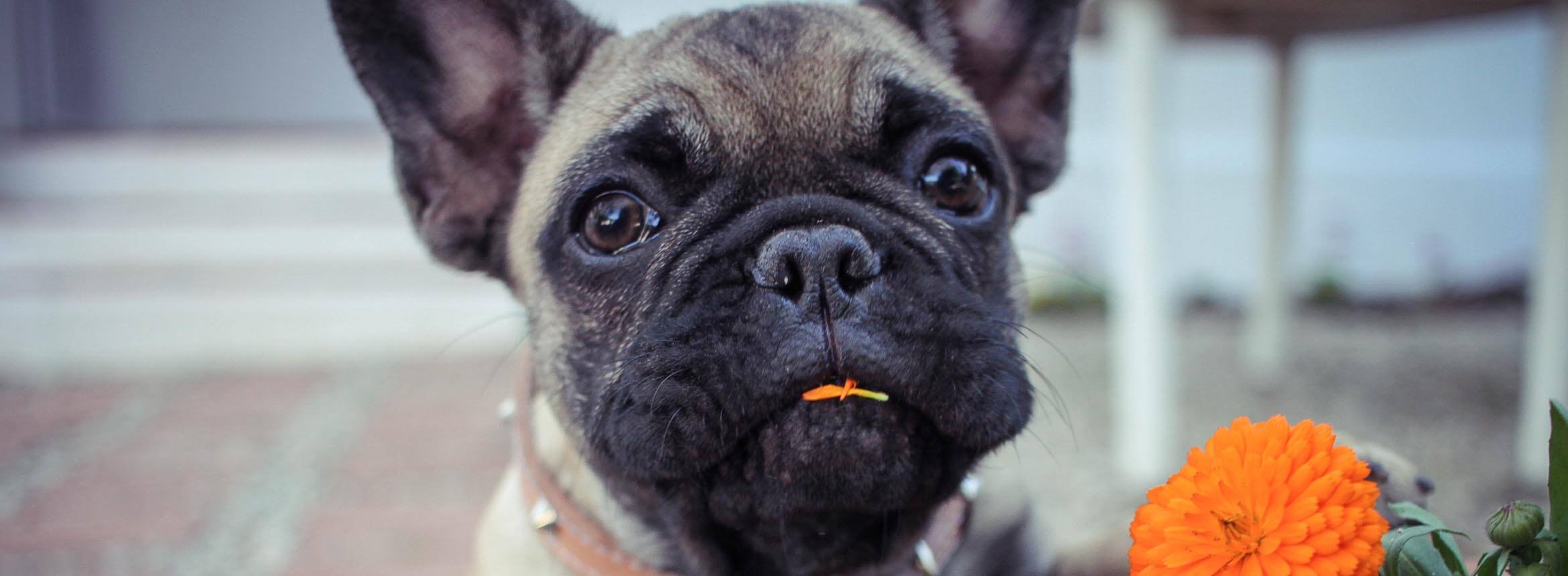A mouthful of grass. That random rock on the sidewalk. A piece of poop … dogs have no problem eating things that would turn any Pet Parent’s stomach! Here’s the lowdown on why your pup might be eating strange things — and when it may be a cause for concern.
Eating grass
Dogs may munch on the lawn for a variety of reasons. While it’s not known for certain, it could possibly mean they have an upset tummy, or they might be seeking out vitamins they aren’t getting from their diet. Most of the time though, pups are probably eating grass for some good old-fashioned fiber. The only time to be concerned about your dog’s grass-eating is if there are chemicals or animal droppings present. Ingesting these could lead to infections or illness. To ensure against any vitamin deficiencies, feed your pal a complete, balanced, and nutritious diet.
Eating poop
Snacking on poop — also known as coprophagia — is one of the grosser doggy habits. In puppies, this behavior is relatively normal. Puppies may be seeking out nutrients found in poop, and they will usually grow out of this habit as they get older. However, older dogs may still try to eat poop from time to time.
While disgusting, if your pal eats his own poo, it’s relatively harmless. Make sure he doesn’t eat droppings from other animals, though — this is a common way to catch parasites. Take your buddy to the veterinarian to rule out anxiety issues or parasites as the source of this habit.
Eating rocks (or other inedible items)
Some strange eating habits are more dangerous. Eating rocks, toys, paper, clothing, or other inedible things could cause serious harm to your pup’s digestive system.
Pica
is a condition that causes pups to seek out and ingest inedible objects. There are many possible causes of pica, including anxiety, diabetes, or hormonal imbalance. Get your dog checked out at the vet as soon as you notice a problem. Your vet may want to run tests to see if there’s an underlying health problem to address. Pica can also be caused by behavioral issues like boredom or seeking attention — when a Pet Parent reacts, it can encourage bad behavior.
Symptoms you shouldn’t ignore
Contact your vet if you don’t know what your dog has eaten, and you notice these symptoms:
- Vomiting and diarrhea
- Pain and tenderness in the abdomen
- Constipation or difficulty defecating
- Disinterest in food
- Snapping or growling when you try to pick him up
Prevention tip: Teach your dog to “Leave it!”
It’s a truism of dog pet parenthood: Sometimes your pup will gobble up something on a walk despite all your best efforts. Teaching him to “Leave it!” or “Drop it!” can help curb this behavior — and may even save his life in the future. Check out our Dog Training 101 Series to learn more.

